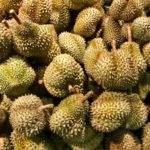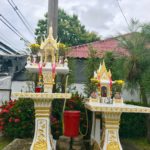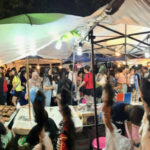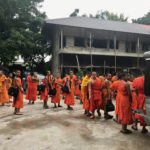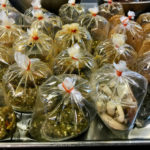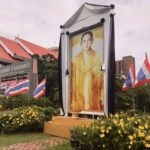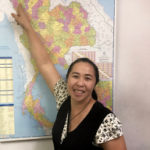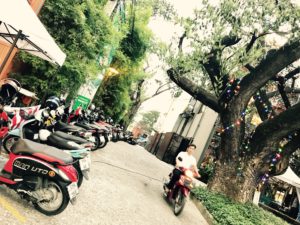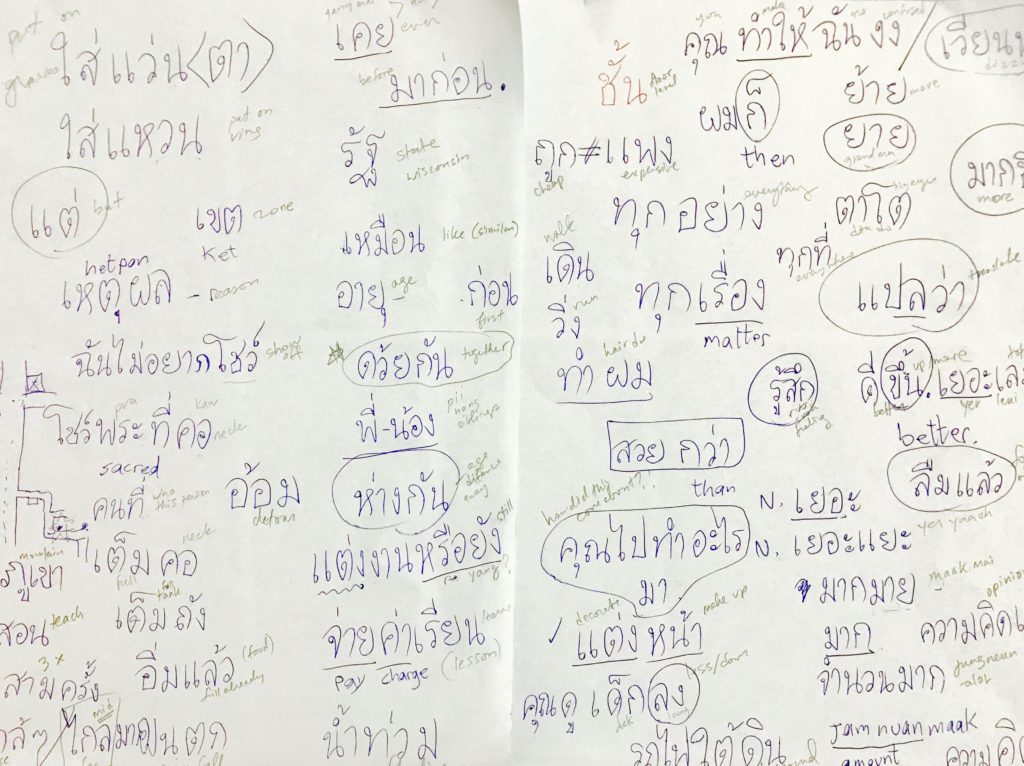NINE things that are indeed, very Thai.
- Durian
- Tuuk Tuuk
- Muay Thai
- Spirit Houses
- The Wai
- Night Markets
- Buddhist Monks
- Bagged Food
- Images of the King (I chose nine things because the number 9 is lucky according to Thai superstition, and it is an important number in Thai culture. Many Thai people continue to show reverence for Rama 9, the late King Bumibol Adulyadej by wearing a thai number 9 on their clothing.)
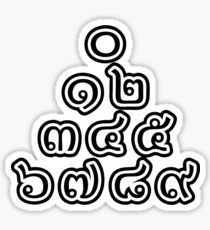
Thai numbers – 9 is on the bottom right and looks like an elephant. I continued to take Thai language lessons all the way until the day before my flight. I’m very grateful to my 3 Thai teachers: Kruu Simon, Ajaan Lah and Kruu Kaan. Each one of them helped me tremendously on this journey.
Post-Program Reflections
Through Thai language I am able to grasp better understanding about Thai thinking and ways of operating. Memories resurface from my childhood and now make more sense.
Surprisingly, I met the language goals I set for myself before starting off on this trip. My language learning went through many stages during the trip. At times it was easy, fun, dizzying, rigorous and tough. I did not expect the rollercoaster range of emotions that go with language learning and living independently in another country for a length of time. Two months is short, yet Thai time is very different than American time, for sure.
One thing I have brought back as a result of this experience, is the idea of “Mai Bpen Rai.” It’s a phrase that is similar to ‘sabai sabai’ and loosely, it means never mind, no problem, it’s OK… That’s something I repeat internally to myself, in or out of Thailand. Like many other things, language learning is a life-practice, and this mantra allows me to accept the process. I apply it to many aspects of my life, and it expands my heart.
Where do I go from here? Well, I continue to study Thai. I watch videos, do exercises in my workbooks, and am setting up weekly Skype lessons. (I actually feel a bit of withdrawal!) I remain connected to the dear friends and professional contacts that I’ve made. I anticipate returning in the near future. This experience has helped me on my way towards building an exchange program between Thailand and the US.
